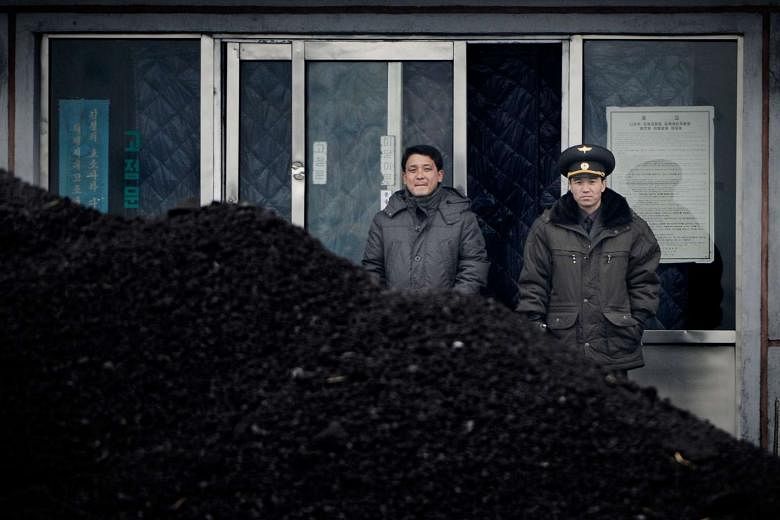SEOUL • China's state-run Global Times said yesterday that Beijing would stick to UN sanctions aimed at punishing North Korea for its nuclear weapons and missile programmes, as Pyongyang lashed out at its neighbour for its "mean behaviour".
China last Saturday announced it was suspending all coal imports from North Korea for the rest of the year. Coal is a major source of income for Pyongyang.
In an editorial, the Global Times said Beijing "should remain steadfast in its strict compliance of the sanction resolution from the United Nations Security Council, regardless of what any reaction Pyongyang might have".
It added: "Beijing will maintain its long-term policy regarding Pyongyang, and thus continue to oppose the country's nuclear program while holding on to the normal bilateral ties already in place."
North Korea on Thursday criticised China in unusually bitter language for tightening sanctions.
A commentary carried by the North's state-run Korean Central News Agency (KCNA) referred to "a neighbouring country which often claims itself to be a friendly neighbour".
The commentary, referring to North Korea's official name, the Democratic People's Republic of Korea, said: "This country, styling itself a big power, is dancing to the tune of the US while defending its mean behaviour with such excuses that it was meant not to have a negative impact on the living of the people in the DPRK but to check its nuclear programme."
China said the move was designed to implement last November's United Nations Security Council resolution that tightened sanctions against the regime in the wake of its last nuclear test.
Experts also say the move reflected Beijing's deep frustration with North Korea over its recent missile test and the assassination of Mr Kim Jong Un's half-brother in Malaysia.
Coal accounted for nearly 40 per cent of North Korea's exports in the past several years, and almost all of it was shipped to China, according to South Korean government estimates.
North Korea depends on China for 90 per cent of its external trade.
That has led officials in South Korea and the United States to argue that Beijing should use its economic influence to force the North to suspend its weapons programmes.
But other analysts remain sceptical about China's willingness to use its economic leverage. China and North Korea share a deep bond forged decades ago when their communist leaders fought together.
They tend to see China's suspension of coal imports as a warning to North Korea and as a deft move to blunt Washington's criticism that it was not doing enough to enforce sanctions.
Data released yesterday show that China's coal imports from North Korea eased last month after the new UN Security Council sanctions came into force.
January imports eased 13 per cent from a year earlier to 1.45 million tonnes. They were down 28 per cent from December.
The imports came before Beijing's decision last Saturday to ban coal shipments.
North Korea was China's biggest supplier last year of high-grade anthracite coal, used mainly by the country's steel mills, with imports reaching 22.4 million tonnes, up 14.5 per cent compared with 2015.
AGENCE FRANCE-PRESSE, REUTERS

